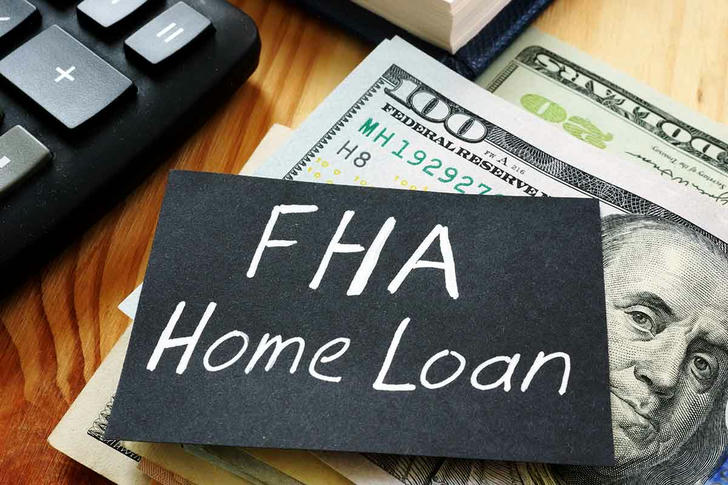What you need to know about FHA loans and 500 credit scores
Did you know that with a credit score as low as 500, you might still qualify for an FHA loan? Explore eligibility requirements and strategies to secure your home today!

Many Americans face challenges when trying to secure a home, especially when it comes to credit scores. This is where FHA loans come into play. Designed for first-time homebuyers and those with lower income, FHA loans can be a pathway to homeownership. But what if your credit score is as low as 500? How does that affect your eligibility?
In this article, we will explore the specific criteria for obtaining an FHA loan with a 500 credit score, the impact of that score on your financing options, and actionable steps you can take to improve your situation. We will also look at the overall landscape of FHA lending, including interest rates and down payment requirements. Join us as we break down everything you need to know about navigating the world of FHA loans, particularly if your credit score isn't where you'd like it to be.
Understanding FHA loans
FHA loans are backed by the Federal Housing Administration. This government agency helps promote homeownership by making it easier for individuals with lower credit scores to secure financing. These loans are particularly beneficial for first-time buyers, as they require smaller down payments and have more lenient qualifying standards compared to conventional loans.
One of the primary attractions of FHA loans is their down payment requirement. Borrowers can put down as little as 3.5% of the purchase price if their credit score is 580 or higher. However, for those with a credit score between 500 and 579, the down payment requirement jumps to 10%. Additionally, FHA loans usually feature lower interest rates, which can save borrowers significant money over time.
Eligibility for FHA loans with a 500 credit score
To qualify for an FHA loan with a credit score of 500, there are specific requirements you need to meet. First, you must have a steady employment history for at least two years. Lenders will look into your job stability as a key indicator of your ability to repay the loan.
Next, it is essential to show adequate income. You must demonstrate that your income is sufficient to cover the mortgage payments, taxes, and homeowners insurance. Keep in mind that lenders will also consider your total debt-to-income ratio, which ideally should not exceed 43%.
Finally, the home you intend to purchase must be your primary residence. An FHA loan cannot be used for investment properties or vacation homes. Meeting these conditions can significantly improve your chances of being approved for an FHA loan with a lower credit score.
Financial considerations when applying
One key factor to remember when applying for an FHA loan with a low credit score is the addition of mortgage insurance premiums (MIP). Both upfront and annual MIP are required for FHA loans, which adds to your monthly expenses. For people with a 500 credit score, these costs are particularly impactful. You must factor this insurance into your overall budget when determining how much home you can afford.
Interestingly, even if you're approved for an FHA loan with a low credit score, the terms may not be as favorable as those for borrowers with higher scores. Higher down payment amounts and increased interest rates can raise your overall financial burden, therefore it’s essential to conduct thorough research and be fully aware of all costs involved.
Strategies to improve your credit score
If you find yourself on the cusp of qualifying for an FHA loan, consider that your credit score doesn't have to remain stagnant. There are practical steps you can take to improve your credit score, making it easier to secure better financing options in the future. Start by checking your credit report for any inaccuracies. Dispute any errors you find, as these can negatively impact your score.
Next, work on paying down existing debts. Reducing your credit utilization ratio will help improve your score. Avoid taking on new debts and make sure to pay your bills on time, as payment history significantly affects your score. It may also help to acquire a secured credit card to build positive credit history over time.
Alternatives to FHA loans
If a 500 credit score presents barriers in obtaining an FHA loan, there are alternatives worth considering. USDA loans and VA loans cater to specific groups and may offer better terms based on your situation. USDA loans are available to low-income buyers in rural areas, while VA loans serve veterans and active military members. Both programs typically have lower requirements for credit scores and down payments.
Another option is to explore conventional loans with lenders willing to consider borrowers with lower credit scores. While terms may not be as favorable, they can provide alternative pathways to homeownership. It’s essential to compare available options, understand the requirements and possibly seek advice from a mortgage professional.
FHA loans can be an accessible option for those trying to secure a home with low credit scores. Those with a score of 500 can navigate the application process, but it's essential to understand the specific requirements like employment history and debt-to-income ratio. Financial considerations, such as mortgage insurance premiums, should also be taken into account when budgeting. The strategies to boost your score can open up even better financing options later on. Moreover, exploring the range of alternatives can help broaden your horizons, making homeownership a plausible goal.
